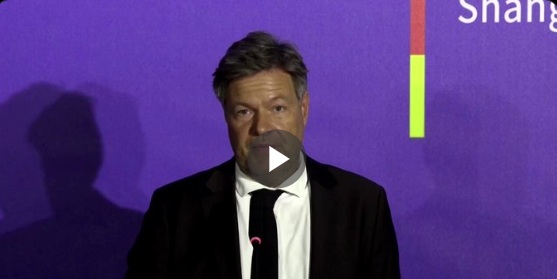China is now in a position where they can dictate terms to any trade deal with Europe. They are not happy with the latest moves of the EU.
China and the European Union have initiated discussions to address proposed tariffs on Chinese-made electric vehicles (EVs) entering the European market. This announcement followed agreements between senior officials from both sides to engage in consultations concerning an EU anti-subsidy probe into these imports.
Germany’s economy minister said the EU would negotiate with China on planned tariffs on Chinese-made electric vehicles being imported into Europe https://t.co/QiFxG9UVSu pic.twitter.com/tIUVCZ7H5V
— Reuters (@Reuters) June 23, 2024
Robert Habeck, Germany’s Economy Minister, shared that EU Commissioner Valdis Dombrovskis had informed him of the planned negotiations. This move comes as a significant development given that recent attempts to establish a firm negotiation timeline had been unsuccessful. Habeck, expressing optimism, noted that while this was merely an initial step, it was a vital progress that had previously been elusive.
Earlier discussions had seen Habeck encouraging open dialogue with China, asserting that the EU was receptive to talks about the tariffs on Chinese exports. He emphasized the importance of equal competition in open markets, highlighting that subsidies aimed at boosting export advantages were unacceptable. Habeck made these remarks during his visit to Shanghai, his first stop in a trip that included earlier meetings in Beijing with Chinese officials.
The backdrop to Habeck’s visit is the EU’s recent proposal to impose significant tariffs on Chinese EVs to counteract what it perceives as excessive subsidies. These provisional duties could reach up to 38.1% and are slated to be implemented by July, with a final decision due by November. Habeck reiterated the EU’s stance that these measures were not punitive but necessary to maintain fairness in the market.
The European Commission announced that it would impose provisional duties on imports of Chinese electric vehicles of up to 38.1%, a move likely to draw stern words and possible retaliation from China https://t.co/R7ZSQnOdW5 pic.twitter.com/d9wpHFaM7h
— Reuters (@Reuters) June 12, 2024
The dialogues also touched on geopolitical tensions, particularly China’s support for Russia amidst the ongoing conflict in Ukraine. Habeck pointed out the increasing trade between China and Russia, which had grown over 40% in the previous year, and stressed the economic repercussions of circumventing sanctions against Russia.
At a climate and transformation dialogue in Beijing, Habeck clarified to Chinese officials that the proposed EU tariffs were not intended as a punishment, contrasting the EU’s approach with other countries that have employed punitive tariffs. He explained that the EU’s review, which had been underway for nine months, aimed to ascertain if Chinese firms had unfairly benefited from state subsidies.
In response, Zheng Shanjie, chairman of China’s National Development and Reform Commission, vowed to protect Chinese businesses and argued against the claims of unfair subsidies. He asserted that the growth of China’s new energy sector stemmed from competitive advantages in technology, market presence, and industry supply chains, rather than from government support.
“Beijing wants the EU to scrap its preliminary tariffs on Chinese electric vehicles by July 4, China’s state-controlled Global Times reported, after both sides agreed to hold new trade talks.
Provisional European Union duties of up to 38.1% on imported Chinese-made EVs are set to… pic.twitter.com/CvQ7PKz56h— Investacus 🧠 💰 (@Investacus) June 24, 2024
Zheng expressed hope that Germany would lead within the EU to make balanced decisions and emphasized the potential mutual harm that tariffs on Chinese EVs could inflict on both economies. The negotiations mark a critical juncture in EU-China relations, focusing on the intricate balance between free trade and fair competition.
Major Points:
- China and the European Union have commenced negotiations to address proposed EU tariffs on Chinese-made electric vehicles, stemming from concerns over subsidies.
- German Economy Minister Robert Habeck confirmed the initiation of these talks, highlighting them as a crucial breakthrough after previous stalled efforts.
- The discussions are part of a broader examination by the EU, which could lead to imposing duties of up to 38.1% on these imports by July, with a final decision expected in November.
- The talks also cover geopolitical issues, notably China’s support for Russia in the Ukraine conflict, which complicates the economic relations between China and the EU.
- Chinese officials, defending their position, insist that their EV industry’s growth is due to competitive advantages and not unfair subsidies, urging the EU to consider the detrimental effects of tariffs on both economies.
Kirk Volo – Reprinted with permission of Whatfinger News



